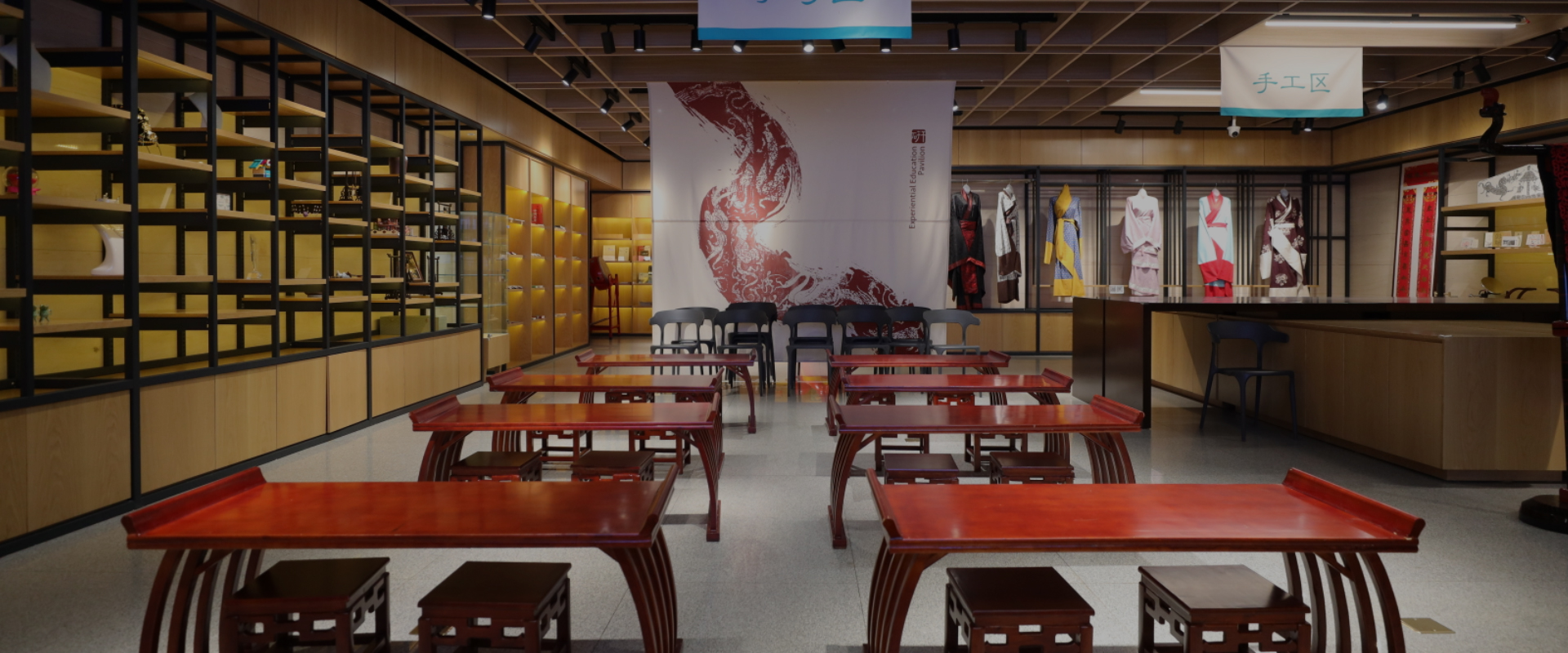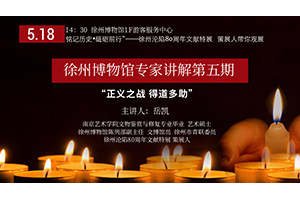

Xuzhou Han Culture Academic
Submit
【XU BO】Maximum daily capacity: 10,000 person-times Instantaneous capacity: 2,500 person-times


Activity time:2020/5/18 14:30:00
Activity location:Art Gallery of Xuzhou Museum
Age requirement:unlimited
Introduction:
Lecturer: Yue Kai
Lecture content:More Justice, More Help
Time: May 18, 2018, 14:30 pm
Place: Art Gallery of Xuzhou Museum
About the lecturer:
Yue Kai, born in Xuzhou, Jiangsu in 1987, graduated from the Cultural Relics Appreciation and Restoration Department of Nanjing Academy of Arts, master of arts, is a deputy director of Xuzhou Museum Exhibition Department, librarian and member of Xuzhou Youth Federation.
For many years, Director Yue has paid close attention to and actively committed to collecting and collating historical documents during the Anti-Japanese War. He donated a large number of precious images and archives, and received numerous exclusive interviews with mainstream media at home and abroad. He has ever won the advanced individual of the first national movable cultural relic census in Xuzhou, Xuzhou advanced workers in protecting cultural relics according to law.
About the lecture:
May 19 this year is a special significance anniversary for the 80th anniversary of the fall of Xuzhou. Xuzhou was a strategic place for the Japanese invasion of China, and it was also the forefront of the Chinese people's anti-Japanese struggle. In order to carry forward the great spirit of the War of Resistance Against Japan, Xuzhou Wenguang New Bureau, Xuzhou Archives Bureau (Xuanzhou Museum), and Xuzhou Museum jointly planned to hold a "Special Exhibition of Remembering History and Promoting Progress", the 80th anniversary of the fall of Xuzhou.
This exhibition has highlights in terms of the systemic content, the authority of historical materials, the richness of cultural relics, and the diversity of exhibition methods. The exhibition content integrates the latest research results and research results, such as the section entitled "The Battle for Justice". The documents displayed reflect the journalist's just coverage and support for the Xuzhou Campaign, and humanitarian selfless assistance from international friends. They use lenses and text to record precious historical memories. The most noteworthy is that after nearly six months of unremitting efforts, the collection and collection of Harrison Foreman, who collected from the Library of the University of Wisconsin-Milwaukee in the United States, took a series of precious historical images in Xuzhou and exhibited the copyright. The lecturer will interpret this unit from the perspective of the curator.